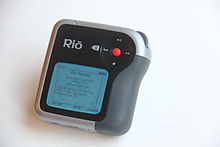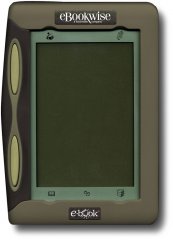I have a bunch of beautiful books. They’re mostly in hardback because I don’t see paperbacks as objets d’art the way I do my hardback books. Oh, don’t get me wrong, I read hardbacks, certainly. If I have it, I read it. But there’s just something substantial about a hardback book. Specifically, I’m thinking of my faux leatherbound books, but no matter.
As I go around the ebook blogs like Teleread and The Book is Dead, a bunch of dissociated rememberies from my childhood plague me. They’re always the same ones, played in different order, but in a loop:
Remembery #1.
The mp3 player was only a Wish when I was a child (think 1970s) with my little panda transistor radio barely capable of tuning in the jazz station, but playing disco just fine and dandy. Rock the boat, don’t rock the boat, baby. Rock the boat, don’t tip the boat over.
I had my Wish in my mind like a jukebox, playing all the songs I loved and none of the songs I didn’t love, all in one place, in the palm of my hand. Even as I got older, I couldn’t afford to buy albums and then, once I got a “boom box,” couldn’t afford to buy cassettes, either. I taped random songs off the radio and tried my best to come up with as clean a version as a K-Tel compilation cassette as I could. It didn’t work and my wish became a longing so intense sometimes I couldn’t bear it. Then I got a Walkman, which was a step up, but my ADD/OCD could not be happy. Why, oh why, was there no way to buy a song at a time? What would that look like? How could it be done?
My Wish: a jukebox in my hand, with all the songs I loved and none of the songs I hated, with the ability to purchase one song at a time.
Remembery #2.
Dark house post family bedtime. Flashlight. Book. Covers. You all know this routine. For my mother, it was hiding in the back of a closet. With a flashlight. And a book. Why didn’t my book come with a light? You know, something handy, that I could clip onto it? That way I didn’t have to give my flashlight a blow job every time I had to turn the page.
Remembery #3.
Jean-Luc Picard sitting in his cabin reading a hardback book. To me, this was nothing until a crew member questioned him. Wesley, maybe? I can’t remember. Too young to know what a hardback book with paper pages was. To Picard, it was an antique. To Wesley, it was a novelty.
DISCLAIMER: I didn’t watch Star Trek much. Not the original, not the Next Generation, not Voyager, or many of the spinoffs (although I actually enjoyed Deep Space 9 because everybody on that show had serious faults and weren’t a bunch of Mary Sues and Gary Stus running around knowing how to deal with every situation). This is why my remembering an STNG episode is so…exceptional. And it had to do with a book and what must have happened to books to evoke the reaction Picard’s hardback paper book evoked.
 Something that could store a library in one spot? Like my dream of a jukebox in my hand. Could it be? A library in my hand?
Something that could store a library in one spot? Like my dream of a jukebox in my hand. Could it be? A library in my hand?
Don’t get me wrong. At that point, I was old enough to know it could be done, but I wasn’t getting my hopes up because the jukebox in my hand hadn’t materialized yet or if it had, I didn’t know about it.
You have to know something about me that makes my need for such things a compulsion (you know, besides my mental disorders): I am an anti-packrat. I hate Stuff. I have Stuff I don’t hate, really, but if it can be condensed, packed, and stored out of sight until I need it, so I can have SPACE, I am more kindly disposed toward Stuff. (Oh, Space Bags, how I would love thee if every blanket we own weren’t in use because it’s as cold as a witch’s tit outside.) I don’t like knickknacks, either. And as I get older, the Mies van der Rohe school of architecture (mid-century modern) gets more and more attractive to me.
The only things I collect and store without driving my OCD/ADD batty is data. And mp3s. And now, ebooks.
(I like lots of art, though, so as soon as the Tax Deductions stop coloring on the walls, I’ll paint and put up my art. It’s difficult to deal with the child who writes her name on the wall and then blames her little brother, who doesn’t know how to read, much less write.)
I haven’t quite figured out how to go completely minimalist, given the life of a family and its needs for Stuff.
But the jukebox-and-library in hand is a good start.


